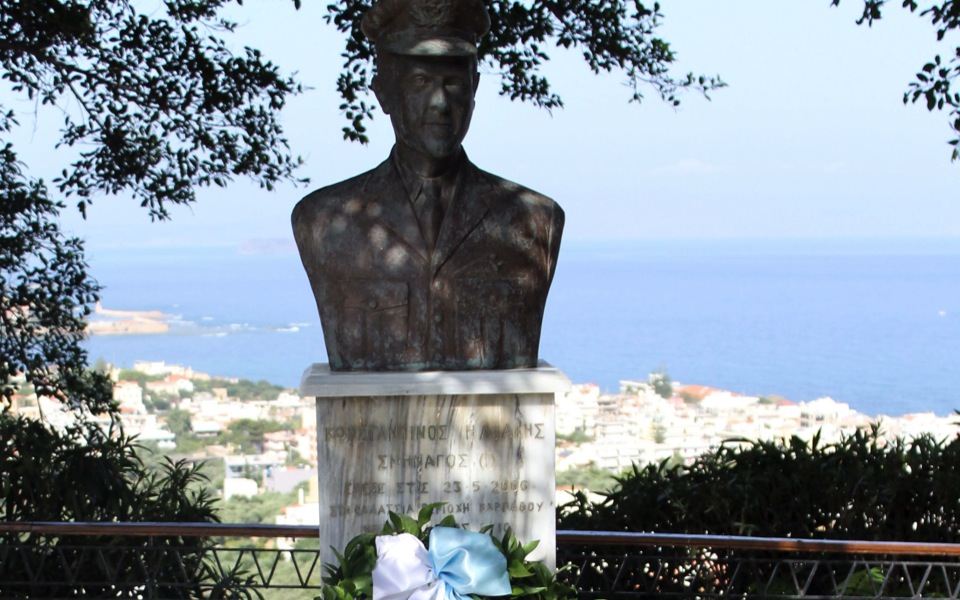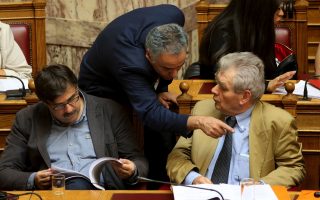Ten years since Capt. Kostas Eliakis’s death – a story of unnecessary heroism

May 23, 2006, Karpathos, Southeastern Aegean. Hellenic Air Force pilot Captain Kostas Eliakis takes off from Souda, Crete, to intercept one of thousands of Turkish intrusions. Something as absurd as waving off an “ally’s” aggression has become routine for pilots like Eliakis, whose whole careers, for the past 40 years, have been based on this insanity.
According to international procedures, Captain Eliakis approached the Turkish aircraft maintaining a steady course and the required safe distance while trying to identify the nonresponsive aircraft. This is a typical procedure that Greek pilots are called to carry out hundreds of times in their careers. This time it was different.
The inexperienced and reckless Turkish pilot, 1st Lieutenant Halil Ibrahim Ozdemir, made an idiotic, abrupt maneuver in close proximity, crashing on top of Captain Eliakis's airplane. Ozdemir ejected and was rescued. Eliakis was never found. Monday was the 10th anniversary of his futile death.
According to reports by Greek pilots, Ozdemir is one of many Turkish pilots from an infamous Turkish Air Force squadron. The pilots of that squadron have been consistently responsible for multiple near misses in the Aegean due to their utter disregard for flight safety and a lack of respect for their fellow airmen. You can watch one of them here. In this video, the Turkish pilot nearly crashed on the Greek F-16, passing with full afterburner, less than 50ft ahead of him. This is the closest one can get to understanding what happened that fateful day when Captain Eliakis unwillingly became a “hero.”
Heroism, however, can be a convoluted notion, more than a label that we place on someone for a courageous deed at a perilous moment. The heroic christening takes place in the fraction of a heartbeat needed to make the conscious decision of placing a higher cause above your life. Unfortunately, the hero label is often misused to mask a senseless death and the responsibilities surrounding it.
Captain Eliakis was not a hero because he lost his life during an ordinary interception. He was a hero for prioritizing the Hellenic Air Force and the sovereignty of Greece over his children and his wife and mother and siblings every time he took off. Day in, day out, he was a hero for knowing that the mock dogfights were senseless but he had to do his part when others had not been doing theirs.
That day, however, he was a victim. He was a victim of the policies that allowed Turkey to establish the Aegean as a disputed territory. He was a victim of the people at the helm of Greece the past few decades who failed to make the right decisions that would either give him the chance to consciously become a hero or to protect him from a nonsensical death.
* Nikolas Katsimpras is a lecturer on the negotiation and conflict resolution graduate program of Columbia University, a senior fellow at the Hellenic American Leadership Council and a former officer of the Hellenic Navy. Twitter: @nkatsimpras



